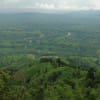Peace remains elusive to CHT’s Indigenous Peoples

The nightmare began on September 19, 2024. In Khagrachhari and Rangamati, two districts of Chittagong Hill Tracts (CHT), an organised crime against the Indigenous Peoples was committed by a group of Bangalees, which left several dozens injured and at least four Indigenous persons dead. Anik Kumar Chakma, aged 17, was one of them; a video clip of his killing went viral on social media. The clip shows how the attackers brutally beat up Anik to death on the street in public. On September 19, Dhananjoy Chakma (50), Junan Chakma (22), and Rubel Tripura (24) were killed in Khagrachhari by some Bangalees. Homes and shops of Indigenous Peoples were vandalised in both districts. In a statement, the International Work Group for Indigenous Affairs mentioned that the office of the Chittagong Hill Tracts Regional Council (CHTRC) and the district office of the Parbatya Chattagram Jana Samhati Samity (PCJSS) were set on fire, and a Buddhist temple, Moitri Vihar, was vandalised and looted.
Till date, no perpetrator has been brought under the law. In CHT's history, over a dozen massacres and communal attacks have been carried out against the Indigenous communities both before and after the signing of the historic CHT Accord in 1997. All these incidents against the Indigenous Peoples remained beyond justice. Will this culture of impunity be continued forever in the CHT?
The recent attacks in Khagrachhari and Rangamati have added a new dimension to the discourse of CHT issue with organised and targeted propaganda across different media platforms. Discriminatory slurs in different forms appeared on various social media platforms. People from Indigenous communities often face hatred, bullying, verbal abuse, and even physical assault where they reside for work and study purposes across the country. Recent events have amplified their negative experiences. Although the proclamation of independence of Bangladesh promises to establish equality, equity, human dignity, and social justice for all citizens, the experience of Indigenous Peoples doesn't reflect the image of a society that holds the core values of peace and harmony.
Indigenous students and youth participated spontaneously in the July mass uprising hoping to get justice that they have been historically denied for generations. I can vividly recall the Indigenous youth upholding a banner that said, "Free CHT from Militarisation," among the mass gathering at Dhaka University on August 3, just two days before the fall of the autocratic Awami League government. Naturally, Indigenous communities, including the Jumma people of CHT, also dreamt of a better future under the leadership of Nobel Laureate Prof Muhammad Yunus. However, the recent violence and atrocities, and the response of the government and local administration to those, certainly caused a huge disappointment among the Indigenous communities. The recent attacks on Indigenous Peoples, their houses, properties, business centres followed the pattern seen in the past.
There is a pattern of communal attacks in the CHT. It often starts with the killing/homicide of a Bangalee person, followed by processions by the local Bangalee community, and in the aftermath, we see attacks on Indigenous communities—their houses, businesses, shops, etc are vandalised and looted, lands grabbed, individuals killed, Indigenous women sexually abused, and so on. September's unrest in the CHT that resulted in a widespread attack on Indigenous Peoples also started similarly—after the fatal beating of Mohammad Mamun in Khagrachhari on September 18, though his wife accused three local Bangalees in the case filed later. Knowing this pattern of violence, the question remains as to why the authorities did not take any precautionary measures.
The same pattern can be observed in the atrocities that took place against the Indigenous communities on October 1 in Khagrachhari Sadar. After Abul Hasnat Muhammad Sohail Rana, a teacher of Khagrachhari Technical School and College, was beaten to death for allegedly raping a 14-year-old Indigenous student, some group of Bangalees attacked houses of Indigenous Peoples, and looted and torched their businesses in Khagrachhari Sadar. While fatal mob beating is undoubtedly a condemnable act, the pattern of violence that followed shows that such incidents are happening repeatedly because perpetrators of previous incidents were not brought to book. The deep-rooted culture of impunity as well as the reluctance of local administration give the perpetrators the incentive to repeat such violence.
In a democratic country, isn't it natural for law enforcement agencies to conduct a free and fair investigation into the killing of any citizen? Should the person responsible for the killing not be taken into custody? Unfortunately, some Bangalees often use such killings in the CHT to incite communal aggression against Indigenous Peoples. Law enforcement agencies, responsible for the security and protection of civilians, often remain indifferent despite being direct witnesses of such atrocities in the CHT.
At the same time, the government's silence regarding the communal hatred against Indigenous Peoples and their lack of security in and outside the CHT further deteriorates and complicates the CHT issue. Therefore, the interim government should take urgent and immediate actions to resolve the CHT issue to ensure peace, harmony and justice in the region. Although the chief adviser issued a statement asking all residents of the CHT region to stay calm and maintain peace in the area, fear, insecurity and tension remain persistent in the minds of the Indigenous inhabitants. His assurance of taking legal action against all the perpetrators behind these incidents failed to restore confidence among the Indigenous communities as they did not see any material change on the ground.
On September 21, a high-level government delegation headed by Home Affairs Adviser Lt Gen (retd) Jahangir Alam Chowdhury paid a visit to Rangamati and Khagrachhari. The delegation met with local political leaders, traditional leaders, eminent personalities, representatives from business and trade bodies, media outlets, law enforcement agencies, CHT Regional Council and government officials, but did not visit the affected areas. As a result, the delegation's visit was insufficient in regaining the confidence and trust of the Indigenous communities.
How, then, would peace and justice be established in the CHT region? The interim government could have set an example by demonstrating the political will to implement the 1997 CHT Accord. In a recent interview conducted in Bangla with the Voice of America, Prof Yunus stated that his administration can't resolve the long-standing problem of CHT and conferred the responsibility to the next government. He also spoke about the need for a new treaty with the Indigenous communities of CHT as the current one could not be implemented for so many years.
The previous government's reluctance to implement the CHT Accord and the deceitful strategies to prolong the overall implementation process have led to frequent violations of rights of the Indigenous Peoples. The basic provisions of the accord, such as ensuring the traditional land rights of Indigenous inhabitants and empowering them through a democratic process would have established their right to self-determination and brought an end to the presence of security forces in the region.
This could have been an excellent scope for the interim government to show and prove that they are different from the past governments by immediately starting the implementation process with courage. Otherwise, years of grievances and oppression, and the culture of impunity for crimes committed against Indigenous communities will push the region into the pre-accord situation which will not benefit anyone. Unless the basic issues faced by the Indigenous Peoples are addressed properly by fully implementing the accord, various vested interest groups involved in the CHT region will continue taking advantage of small incidents and stir up bigger turmoil.
Satej Chakma is a writer and an Indigenous human rights activist.
Views expressed in this article are the author's own.
Follow The Daily Star Opinion on Facebook for the latest opinions, commentaries and analyses by experts and professionals. To contribute your article or letter to The Daily Star Opinion, see our guidelines for submission.

 For all latest news, follow The Daily Star's Google News channel.
For all latest news, follow The Daily Star's Google News channel. 









Comments